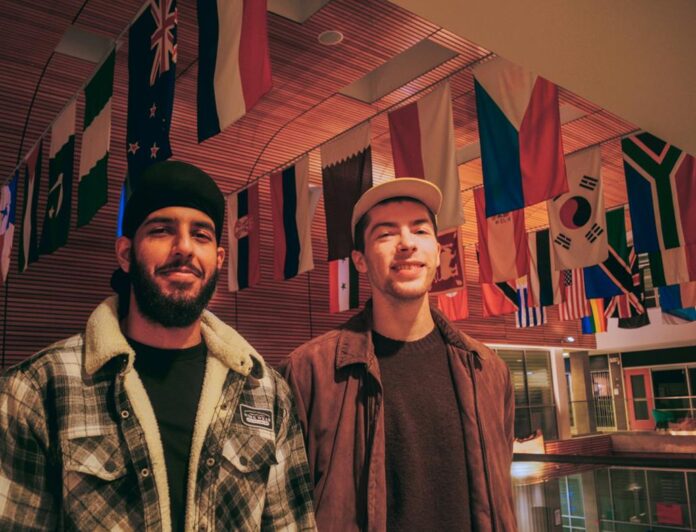On Oct. 19, people were focused on the news, anxiously awaiting the voting results from the provincial election. For UFV political science students Yonni Silberman and Prabujot Bagri, the experience was slightly different as they shared their expertise on the CityNews 24/7 Vancouver Election Night Panel.
Bagri, an aspiring lawyer, was one of two students selected by political science associate professor Hamish Telford to appear on the panel. Bagri shared with The Cascade that it was Telford who was connected with CityNews and expressed his gratitude for the opportunity.
“I have to give a big thanks to him for recommending me.”
He explained how the discussion-based method of Dr. Telford’s class helped him prepare for the panel and gave a “sense of familiarity” with Dr. Telford and his classmate, Yonni Silberman present.
Silberman said that from the previous day when he was preparing his notes, every moment leading up to streaming live was daunting,
“It’s terrifying, of course. It’s terrifying as soon as you enter the building. It’s terrifying when they give an announcement right before, that we’re five minutes away.”
He explained that despite the cameras rolling, it still took a while for the panel to begin, and those minutes being filmed without speaking is what ultimately helped him quiet his nerves.
“The realization that you’re just in a room with the same people that you’re normally in, talking about the things that you’re normally talking about settles in, and the expectation that you just have to speak your mind, speak your truth … at the end of the day, it’s not that I have to achieve something above and beyond what I know that I should achieve. It’s simply being myself and presenting what I know.”
Bagri echoed this statement and said that the coverage action was happening all around them.
“Slowly, you see everyone else doing their job, all the moving parts coming together. And you do sort of get used to it.”
The continuous coverage went from 8 p.m. to 11:30 p.m., featuring a variety of experts, including Nerissa Allen, president of the Black Business Association of B.C.; Jill Atkey, BC Non-Profit Housing Association’s CEO; and DJ Larkin, executive director of the Canadian Drug Policy Coalition, among others. Bagri shared how it felt to be surrounded by such talent:
“It was really great talking to these people.”
He praised their knowledge and expressed his appreciation for their hands-on experience as well as the chance to have an educational conversation.
“It expanded my knowledge as a whole, you know, there’s only so much you can learn from a textbook … it was also interesting to watch the perspectives of panellists when they’re not supposed to be biased on air to kind of see them air their true thoughts and their true beliefs,” Bagri said. “And when one party’s in the lead and the other party’s down, they start sighing and worrying, and to see that, to kind of reflect, you know, my emotions off of them, was very interesting.”
Election data was updated as the panel progressed, and both Bagri and Silberman were encouraged to have solid foundations and statistics to back up their comments. Silberman admitted it was difficult keeping up with it, especially considering how tight the election was.
“We were doing our research live off of the same websites and news sources that the general public could keep up with and sort of coming up with our analysis in real-time.”
Overall, it was an instructive experience that the two of them would love to repeat. Silberman, who is also pursuing law, said he felt thankful to share this same goal with Bagri:
“I feel more that I am in the right direction when I know someone else who is as competent as Prabujot, is also in the same direction as me, or taking the same steps as me.”
When asked what advice they would give people regarding politics, Bagri said:
“Look at policy platforms, look at the facts, try to formulate your own opinion … It’s a civic duty to vote … Democracy only works when people actually vote and show leaders their opinion and show them why they should care about those people and their issues.”
Silberman weighed in on fostering inclusivity and mutual understanding.
“We need to bridge gaps between each other to sort of find a way forward that is inclusive of all of us … So, find people you disagree with or are not familiar with and talk about uncomfortable things with them so that we can learn more about each other.”


